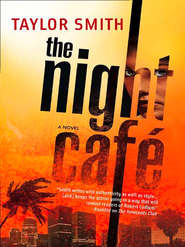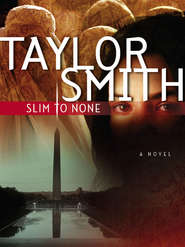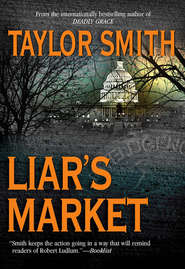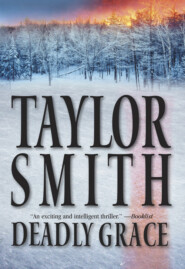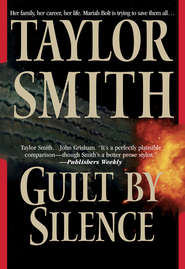По всем вопросам обращайтесь на: info@litportal.ru
(©) 2003-2024.
✖
The Innocents Club
Автор
Год написания книги
2018
Настройки чтения
Размер шрифта
Высота строк
Поля
“I know, but I wanted to. I thought it might be a little tricky for you tonight, what with Renata Hunter Carr being here and all. I came to offer moral support.”
Oh, Lord, Mariah thought, I am an ungrateful wretch.
“I was running late, though. Thought I’d miss the whole shebang,” Paul said, glancing around. “I gather Zakharov’s plane was late arriving?”
Mariah nodded.
He settled on the low balcony wall, long legs crossing at the ankles. His charcoal suit—Armani, no doubt—draped his athletic body with an elegant ease that most mere mortals could only envy. He had also been blessed with the even, agreeable bone structure camera lenses favored. He was fair-haired, with just a little gray and white intermingling at the temples. His face, classically good-looking, was also slightly weathered, adding a patina of maturity to an appearance that might otherwise have been too boyish to carry the weight of the award-winning television news-magazine he anchored.
“Have you seen her yet?” he asked.
“No. Apparently, she’s part of the ribbon-cutting detail, so I imagine she’ll make her entrance with Zakharov and Kidd.”
“How are you holding up?”
“Just fine,” she lied. “It was sweet of you to do this, Paul, but it’s really not that big a deal. I’ve seen her picture in the paper dozens of times. I’m hardly going to have a nervous breakdown just because we happen to be in the same room.”
“What if you have to talk to her?”
“No reason I should. She doesn’t know me, and I’m obviously not going to go out of my way to introduce myself.”
Chaney studied her for a moment, then turned back to the crowd. “There’s Nolan,” he said.
“Nolan?”
“Nolan Carr, her son. The young Robert Redford clone over there with Mayor Riordan and the senators.”
Mariah followed his gaze across the courtyard to where an attractive, self-assured young man was locked in close conversation with the three politicians.
“Looks like he’s lobbying,” Paul said.
“For what?”
He shrugged. “Who knows? Rumor has it his mother’s got political ambitions for her only child.”
Mariah studied the would-be politician. “He looks barely old enough to be out of school.”
“He’s pushing thirty, I think. As for school, he attended Princeton for a while, his late father’s alma mater. I don’t think he ever graduated from anywhere except Playboy U, though. Like I said, politics seems to be his mother’s idea.”
“His father was Jacob Carr, the former state attorney general, right?”
“Mmm…Plus, of course, Mrs. Hunter Carr’s a major contributor in her own right. When the time comes, I’m sure Nolan will have the backing he needs.”
Mariah gave Paul a curious look. “How do you know all this?”
“I interviewed Arlen Hunter not long before he died,” Paul said. “I met both Renata and Nolan, though he was just a kid at the time. Pretty rambunctious, at that. I’ve run into the mother once or twice since.”
“You never told me that,” Mariah said, frowning.
“Well, I knew it was a touchy subject. Frankly, there’s never really been a time before now when I thought it needed to be mentioned.”
“Hmm….” Mariah said. How very politically correct of him.
The director of the Arlen Hunter Museum, who’d been pointed out to Mariah when she’d passed through that afternoon, walked over and whispered something in Nolan Carr’s ear. Carr smiled and nodded without missing a beat, then shook hands with Mayor Riordan and the senators and headed off for the elevators. Along the way, he stopped and shook a few more hands, ever the dutiful host in his grandfather’s establishment. Preternaturally adept at the glad-handing game, Mariah thought. Clearly, the boy had a future.
“So, what exactly does he do for a living?” she asked Paul. “Not that he has to worry about where his next meal is coming from, I suppose.”
“Hard to say, exactly. He’s on the board of the various Hunter corporations and trusts. Dabbles in a little land development, I think. Skis. Sails. The usual.”
“Nice work if you can get it.”
“N’est-ce pas?” Paul said wryly.
A sudden change in the pitch of street noises set off a murmur on the terrace, and people began to gravitate toward the edge of the balcony. The distinct growl of high-powered, armor-encased motors and the deep, throaty whine of motorcycle outriders announced the arrival of the official cavalcade at the front of the building.
Chaney peeked over the edge, then got to his feet. As he took her arm, Mariah felt his fingertips lightly brushing the sensitive place at the inside of her elbow. “Here we go,” he said. “Ready?”
She glanced around, but jaded gazes used to celebrity-spotting had already shifted away from them, anticipating the arrival of bigger fish. “Paul, I don’t know how to put this delicately,” she murmured, “but I’m working here.”
He slipped his hand out of her arm. “Oops, sorry.” He knew what she did for a living. He’d been David’s friend first, but when he’d decided to investigate the suspicious car accident that had led up to David’s death, Paul’s and her professional paths had tangled. “I’ll stay out of your way,” he said. “But it had occurred to me, even if you were tied up for the evening, there’s always a window of opportunity between sunset and sunrise.” He flicked an imaginary cigar, his eyebrows doing a mischievous Groucho Marx bounce.
In spite of herself, Mariah smiled. “Where are you staying?”
His expression shifted to sheepish, and he fingered the almost imperceptible scar on his chin, an old hockey injury. Mariah had been drawn on more than one occasion to slowly trace that small, welcome imperfection. “With you?” he suggested.
“Oh, I don’t know about that. I have no idea what time I’ll be done tonight, and—”
“I have a confession to make. My bag’s already in your room.”
“What? How did you get into my hotel room?”
“I know the manager at the Beverly Wilshire. Stayed there a dozen times. I know it’s presumptuous, but you and I get so few opportunities to be together, I didn’t want to let this one pass. I told the manager we needed to keep it real low-key. In this town, believe me, it’s not the strangest request he’s ever had. He’s totally discreet, I swear.”
She studied those wide-open features, wondering how many times Paul had relied on that discretion in the past. Wondering, too, how thrilled the DDO would be to find out they were sharing quarters here. But there wasn’t time to argue the point now. In any case, when the chips were down, Paul had proven more loyal than the CIA brass. There were plenty of reasons for their relationship to go slow, but at this point, she couldn’t care less what Jack Geist thought about it.
The elevators pinged, doors opening on a rush of air. Several Secret Service men stepped off first, taking up positions at either side of the opening. Three or four of their beefy Russian security counterparts followed. Multiple pairs of dark glasses panned the room as they, too, fanned out, the Russians forming an inner cordon, the Security Service, like tugs around an ocean liner, keeping the dignitaries and Zakharov’s bodyguards in a containment pattern as they moved forward.
“All right,” she conceded. “I’ll catch up to you later. But right now—”
“I’m outta here. I’ll leave you to your spying, Janey Bond.”
She scolded softly, “I’m State Department here, buster, and don’t you forget it.”
Chaney grinned and walked off. She watched as he made his way to the front of the room. At least a hundred and fifty people separated him from the red velvet ribbon strung before the main gallery, but Paul Chaney was one of those people with a God-given gift for putting himself at the center of the action. As he threaded his way forward, faces in the crowd glanced up at him, temporarily distracted from the main attraction. Then, like the Red Sea at the approach of Moses, they parted to let him pass.
Turning back toward the elevator, Mariah recognized the cropped, silvery head of the secretary of state. Next to him was a short, chunky man in an expensive suit, the top of whose head barely cleared Shelby Kidd’s shoulder. Zakharov’s golden cuff links glittered as he lifted his hands to smooth the sides of his thick, snow-white hair. He looked almost cherubic, Mariah thought—Santa Claus in Savile Row—but Zakharov had been a KGB colonel with a reputation for unparalleled ruthlessness before making the transition to politician. She doubted the old leopard had changed his spots at this late date.
Why was it that the most ferocious characters were so often such stumpy little men? she wondered. There had to be a psychology thesis in there somewhere.






